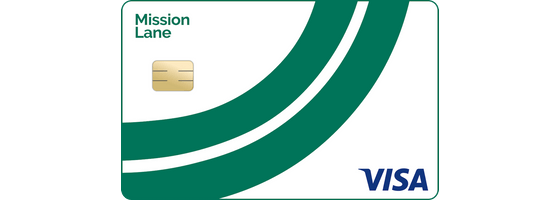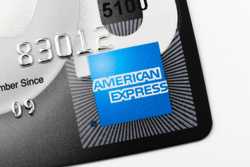- Large welcome bonus.
- Simple rewards structure.
- Up to $120 statement credit toward Global Entry or TSA PreCheck.
Personal Finance
Our evaluations and opinions are not influenced by our advertising relationships, but we may earn a commission from our partners’ links. This content is created by TIME Stamped, under TIME’s direction and produced in accordance with TIME’s editorial guidelines and overseen by TIME’s editorial staff. Learn more about it.
When you submit a credit card application, your credit will receive a “hard credit pull.” This signals to the credit bureaus that you’re trying to acquire credit and temporarily lowers your credit score by a few points.
For this reason, it’s good to keep your hard credit pulls to a minimum. Ideally, you won’t waste them on credit card applications that are ultimately declined.
This is why “soft pull” credit cards are so useful. By pre-qualifying for a credit card via a soft inquiry, which doesn’t affect your credit at all, you can gauge your chances of being approved for a card when formally applying. It’s not always a sure thing, but it can help you to understand which cards are in the realm of possibility.
Our recommendations
Best for travel rewards: card_name
Capital One Venture Rewards Credit Card
Capital One Venture Rewards Credit Card
Why we like it: The annual_fees annual fee card_name is one of the best travel rewards credit cards on the market. The fact that you can prequalify for the card with a soft credit pull is an added plus.
You canbonus_miles_full. It also earns five miles per dollar on hotels and car rentals booked through Capital One Travel and a flat two miles per dollar on everything else. You can transfer these rewards to airline and hotel loyalty programs for free flights and accommodation just about anywhere in the world. The card’s bonus alone could potentially be worth thousands of dollars.
Pros:
Cons:
Cons
- annual_fees annual fee.
- Other cards offer a better return for everyday spending.
- Subpar travel insurance.
Read our full review to learn more.
Best for cash back: card_name
Blue Cash Everyday® Card from American Express
Blue Cash Everyday® Card from American Express
Why we like it: The card_name offers some of the most practical bonus categories for everyday spending. You’ll earn 3% back at U.S. supermarkets (up to $6,000 in spending per year, then 1%), 3% back at U.S. gas stations (up to $6,000 in spending per year, then 1%), and 3% back for U.S. online retail purchases (up to $6,000 in spending per year, then 1% back). You’ll get 1% back on all other purchases.
Plus, the card earns a $200 statement credit after you spend $2,000 on purchases within the first six months of account opening. Not bad for a no annual fee credit card.
Pros:
- Excellent bonus categories.
- No annual fee.
- Solid welcome bonus.
Cons:
- Annual caps on bonus categories.
- Rewards can’t be redeemed for outsized value.
Read our full review to learn more.
Best for earning rewards while building credit: card_name
Capital One QuicksilverOne Cash Rewards Credit Card
Capital One QuicksilverOne Cash Rewards Credit Card
Why we like it: Credit cards that require fair credit often focus on building your credit above all else. After all, someone with a 590 credit score should first and foremost be focused on cultivating a respectable credit profile.
The card_name gives you an excellent balance of accessibility and return rate. Those with fair credit can earn 5% cash back on hotel and rental cars booked through Capital One Travel, and 1.5% cash back on everything else. That’s fantastic for a card with such low approval standards.
This card also comes with a benefit, like free credit monitoring (another boon for those on a mission to improve their credit).
Pros:
- Respectable earning rate.
- Potential credit limit increase automatically after six months.
- Cash back rewards can be converted into Capital One miles (if you also hold a Capital One miles-earning card).
Cons:
- $39 annual fee.
- No welcome bonus.
Rea our full review to learn more.
Best for short-term use: card_name
Capital One Platinum Credit Card
Capital One Platinum Credit Card
Why we like it: To be honest, the card_name doesn’t offer much of anything in terms of ongoing benefits. It doesn’t offer a welcome bonus, earn rewards for spending, or provide any free memberships or statement credits to speak of.
Instead, this card serves well as a stepping stone to a healthy credit score. Those with a limited or no credit history who have trouble opening rewards credit cards have a real shot at being approved. And with its waived foreign transaction fees, credit monitoring program, and potential automatic credit line increase after six months, it’s not a bad choice.
Even better, you can upgrade to a better Capital One credit card after you’ve increased your credit score. Ideally, you’ll only use this card for a short time until you’re eligible to upgrade to a more rewarding one.
Pros:
- No annual fee.
- Those with limited credit history can qualify.
- Upgradable to a better Capital One card in the future.
Cons:
- No rewards program.
- No notable ongoing benefits.
Read our full review to learn more.
Best for a secured credit card alternative: card_name
Avant Credit Card
Avant Credit Card
Why we like it: The card_name is a credit building tool—nothing more. It’s an unsecured credit card with similar approval requirements to a secured credit card that demands a security deposit. The card reports to Equifax, Experian, and TransUnion. That means any good credit practices you exhibit are sure to help you establish a healthy credit score with all three major credit bureaus.
Many secured credit cards come with more shiny ribbons than the card_name, such as useful annual statement credits, cash-back rewards for everyday purchases, etc. But if you can’t float money on a security deposit (or you simply don’t want to), this card is one way to go.
Pros:
- Applicants with bad or limited credit may qualify.
- No security deposit required.
Cons:
- Notably high variable APR.
- No rewards program.
- Potential $59 annual fee.
Read our full review to learn more.
Best for fixed monthly payments: card_name
Upgrade Cash Rewards Visa®
Upgrade Cash Rewards Visa®
Why we like it: The card_name is more of a hybrid credit card/personal loan. Instead of allowing you to carry a balance and make a minimum payment in perpetuity (like a typical credit card), the card_name will roll your balance into what is effectively a personal loan with a term between 12 and 60 months (based on your creditworthiness).
The benefit is that you’ll get fixed monthly payments with a fixed interest rate. The card obliges you to pay off your purchases reasonably quickly—forcing you to avoid the crippling interest charges that come from making minimum payments.
Pros:
- Prevents you from accruing unreasonable interest.
- Potentially high credit line (up to $50,000).
- No annual fee.
Cons:
- Inflexible repayment plans may not suit everyone.
- No rewards for spending.
- Possible annual fee up to $59.
Lear more on our full review.
Best for bad credit: Mission Lane Visa® Credit Card

Mission Lane Visa® Credit Card
Mission Lane Visa® Credit Card
Why we like it: Some credit cards are designed to give those with limited credit history a chance to prove themselves. The issuer has no data on your financial maturity, so it cautiously extends credit to give you your first big break into the world of credit. The same issuers, however, might not be willing to deal with someone who has a bad track record with credit.
That’s where the Mission Lane Visa® Credit Card comes in. You’ll have a tough time finding more relaxed requirements on a credit card. If you’ve made serious mistakes with credit in the past, this card may still be an option. The tradeoff is that it’s subpar in nearly every way—no rewards, no real benefits, no value outside the ability to report your positive credit behavior to all three credit bureaus.
Pros:
- Easy approval.
- No security deposit necessary.
- Helpful to build credit.
Cons:
- Virtually no worthwhile ongoing benefits.
- No rewards for spending.
- Possible annual fee up to $59.
Lear more on our full review.
Best for a low annual fee: card_name
Prosper® Card
Prosper® Card
Why we like it: Many credit cards targeted toward those with tattered (or nonexistent) credit incur high annual fees. The card_name charges a reasonable annual_fees and it’s waived the first year for those who enroll in autopay before the first statement.
This card also hands you access to half of your approved credit line immediately upon approval. It delivers this in the form of a virtual credit card which can be added to mobile wallets.
Pros:
- Easy approval.
- No security deposit necessary.
- Helpful to build credit.
Cons:
- Virtually no worthwhile ongoing benefits.
- No rewards for spending.
- Possible annual fee up to $59.
Read our full review here.
Best for a secured loan: OpenSky® Secured Visa® Credit Card

OpenSky® Secured Visa® Credit Card
OpenSky® Secured Visa® Credit Card
Why we like it: The OpenSky® Secured Visa® Credit Card is one of those last-resort–type credit cards. For a $35 annual fee, you’ll endure a high APR and no return on spending. And because it’s a secured credit card, you’ll need to deposit between $200 and $3,000 to qualify. The amount you deposit is what your credit line will be. The deposit is refundable if you close or upgrade your account to an unsecured card.
Uniquely, the OpenSky® Secured Visa® Credit Card does not check your credit when you apply. You don’t even need to attach your card to a bank account. The card will only ask you for information like your monthly income, Individual Taxpayer Identification Number, age, etc. This is especially helpful for those with extra low credit scores.
The OpenSky® Secured Visa® Credit Card now allow customers to earn up to 10% cash back on purchases at over 40,000 retailers.
Pros:
- No credit check when applying.
- Potential to convert to an unsecured card after six months.
- Potential to increase your credit line without depositing more money after six months.
Cons:
- $35 annual fee.
- No rewards.
- Requires a refundable security deposit of at least $200.
Learn more on our full review.
Best soft pull credit cards comparison chart
| Card name | Annual fees | Credit score | Bonus rewards |
|---|---|---|---|
annual_fees | credit_score_needed | bonus_miles | |
annual_fees | credit_score_needed | bonus_miles | |
annual_fees | credit_score_needed | bonus_miles | |
annual_fees | credit_score_needed | bonus_miles | |
annual_fees | credit_score_needed | bonus_miles | |
annual_fees | credit_score_needed | bonus_miles | |
$0 | Fair, Poor, Bad | bonus_miles | |
annual_fees | credit_score_needed | bonus_miles | |
$35 | no credit (bad credit, no credit check) | Up to 10% cash back rewards |
More about credit cards that offer pre-approval without a hard pull
What is a soft pull credit card?
A soft credit inquiry is essentially a request to view your credit by someone (a lender, employer, etc.) to get an idea of your credit profile. They can do this without your permission, and often you won’t even know it’s happened. You can also perform a soft pull on your own credit if you’re curious about your credit score.
Does a soft pull affect your credit?
Soft credit pulls do not affect your credit. You can use them as often as you like without them publicly appearing on your credit report.
Soft credit pulls usually happen when someone is trying to decide if you’re a good fit for something. For example:
- If you’ve applied to rent a home in an apartment complex, the office may perform a soft pull on your credit to see your current debts or if you’ve got any delinquencies, recent bankruptcies, etc. that might indicate you won’t pay your rent on time.
- If a credit card issuer is targeting customers for a specific credit card, it may run your credit to see if you’re a candidate.
- If you fill out a form to see if you’re pre-qualified for a credit card, the issuer may run a soft pull on your credit for more information.
Because you’re not officially being extended a loan, there won’t be any impact to your credit score. If you were to formally apply for a loan, your credit report would sustain a hard credit pull, which temporarily lowers your credit score by a few points.
Using pre-qualified offers
You can use pre-qualification to your advantage in a couple of ways.
First, it can help you to understand if you’re a fit for a specific credit card. Pre-qualified offers are in no way a guarantee that you’ll be approved for a card, but it’s a solid indication that you’re the type of user the issuer is looking for. In fact, the bank can’t pre-qualify you if, based on all the information they have, they wouldn’t approve you.
However, there are a few details that don’t (usually) crop up on a pre-qualified form, such as your income. When officially applying for a loan, you’ll have to enter these details. Based on this additional information, the bank may decide to decline your application.
Pre-qualification is also great for “rate shopping.” Normally, when you apply for a credit card, you won’t know the exact details of things like your APR—and in some cases, your annual fee. But when you pre-qualify for a credit card, you should receive your proposed set of terms should you decide to apply. You can use this tactic to see which credit card offers the most favorable terms.
TIME Stamp: There are plenty of soft pull credit cards for every financial situation
Whether you’re interested in travel, cash back, rebuilding credit, or just beginning your journey into the world of credit, a number of credit card issuers give you the option to pre-qualify for their cards with a soft pull. It’s a consequence-free way to see if you’ve got a good chance at approval before submitting an application.
Frequently asked questions (FAQs)
Which credit cards don't care about hard inquiries?
Nearly all credit cards will perform a hard inquiry on your credit when you formally apply. There are some exceptions, such as the OpenSky® Secured Visa® Credit Card, which only requires that you input your ITIN and answer a few basic financial questions.
Do soft pulls hurt your credit score?
Soft pulls do not hurt your credit score. Unless you’re officially requesting more credit, your credit score won’t get dinged. Hard credit pulls will lower your credit score by a few points, but it should bounce back in a month or two.
Is there such a thing as a soft credit pull?
Yes. Soft credit pulls can be done by you or others to check your credit score and other details on your credit report. They don’t appear on your public credit report, so it doesn’t affect your credit in any way.
The information presented here is created by TIME Stamped and overseen by TIME editorial staff. To learn more, see our About Us page.
Featured Articles

Business Platinum Card from American Express Review 2025
Learn more about the American Express Business Platinum Card, its many benefits, and who it’s right for.

Chase Freedom Unlimited vs. Citi Double Cash Card: Why You'll Earn More with Freedom
Both cards are without an annual fee and feature generous rewards programs. But Freedom Unlimited provides a competitive edge with its cash back welcome bonus.

British Airways Visa Signature® Card Review 2024
The British Airways Visa Signature® card features a lucrative bonus and valuable benefits, but it’s not perfect for everyone. Learn more.

